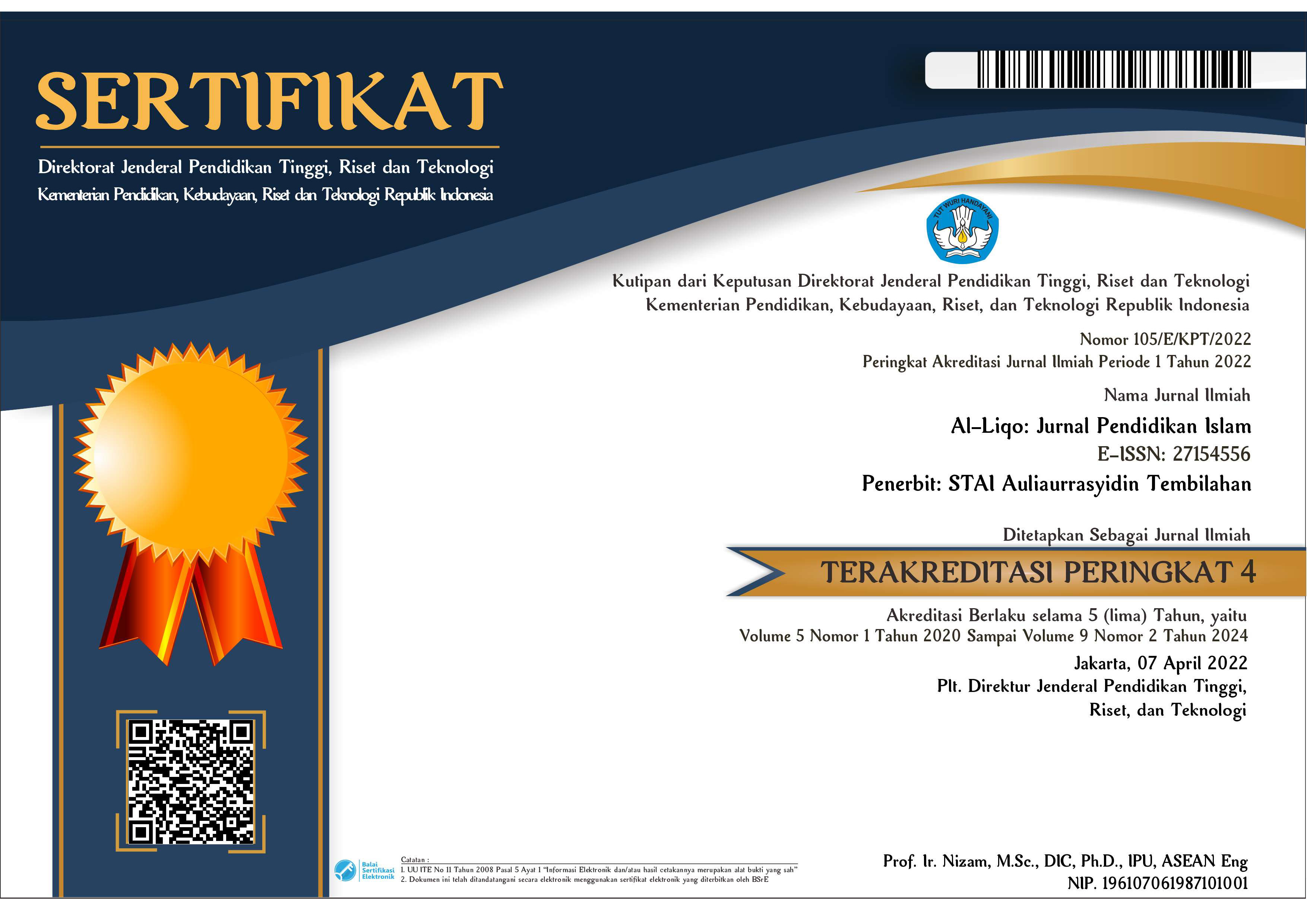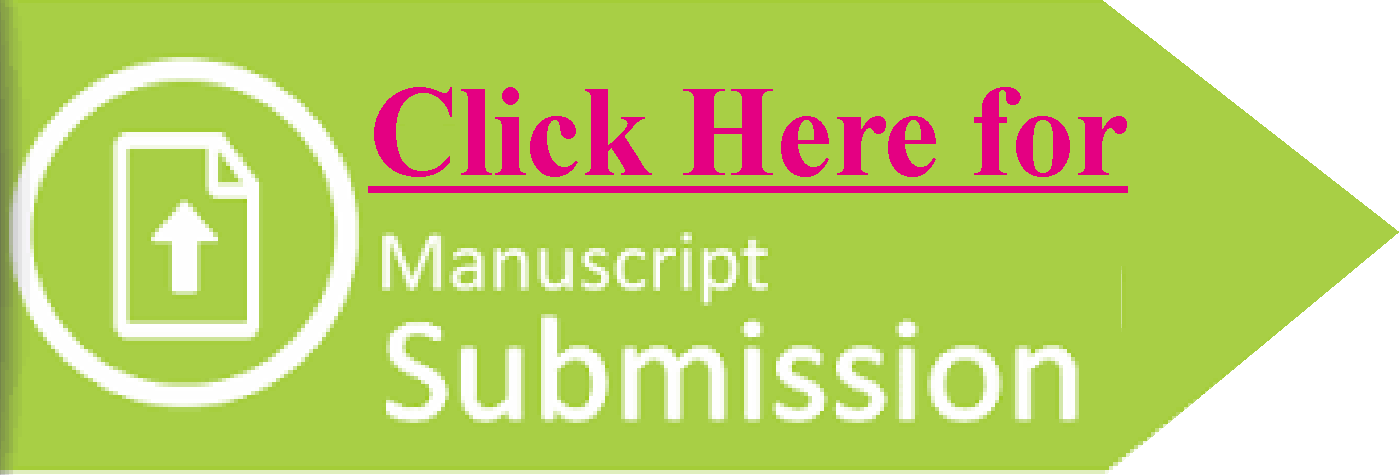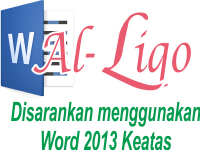Urgensitas Etika Pendidik Abad 21 dalam Public Speaking Mahasiswa Prodi Pendidikan Agama Islam Perspektif Ibnu Miskawaih
DOI:
https://doi.org/10.46963/alliqo.v8i2.696Keywords:
21st Century Educator Ethics, Public Speaking, Ibn MiskawaihAbstract
In the world of education, one of the basic skills in public speaking is public speaking. Public speaking skills are needed for educators when conveying learning to students. For this reason, good and ideal ethics are needed in public speaking to achieve the goals of learning for educators. In this study, researchers used a qualitative research method with library research, namely collecting data from several literatures, such as books, journals, and articles. From this research we can see that public speaking is a form of conveying information to the public which aims to stimulate them to follow what has been said. Ibn Miskawaih argues that ethics is a state of the soul that shows actions without any reflection. Educators in the 21st century are required to be figures who have good ethics, are polite and have extensive knowledge, are able to be more creative, think critically and collaborate in managing the learning environment in the classroom to create an active and conducive atmosphere.In addition, educators must always familiarize and instill kindness in the teachings of Islam.
Downloads
References
Al-Darmono. (2013). Konsep Pendidik Dan Peserta Didik Dalam Perspektif Ibn Miskawaih Dan Al Mawardi (Suatu Studi Komparatif). Journal of Chemical Information and Modelling 53, (9), 1689-1699.
Ali, Z. (2010). Pendidikan Agama Islam. Jakarta: PT Bumi Aksara.
Assingkily, M. S. dkk. (2019). Studi Ilmu Pendidikan. Yogyakarta: K-Media.
Bagus, L. (2000). Kamus Filsafat. Jakarta: PT Gramedia Pustaka.
Bandura, A. (1977). Social Learning Theory. United States of America: Prentice-Hall.
Bisri, K. (2021). Konsep Pendidikan Akhlak Menurut Ibnu Miskawaih dan Implikasinya dalam Pendidikan Islam. Bandung: Nusamedia.
Dewey, J. (2013). Science for a Changing World. New Brunswick and London: Transaction Publishers.
Flora, H. S. (2019). Etika dan Tata Tertib Disiplin Mahasiswa.Jurnal Law Pro Justitia, Juni, 4(2), 25.
Girsang, L. R. M. (2018).Public Speaking Sebagai Bagian Dari Komunikasi Efektif. Jurnal Pengabdian dan Kewirausahaan, 2(2), 83.
Hendriyani, Y., &Purnama, D. (2015). Public Speaking. Tangerang: Universitas Terbuka.
Khozin. (2013). Khazanah Pendidikan Agama Islam. Bandung: PT Remaja Rosdakarya.
Maginda, W., & Surya, D. N. (2020). Teori dan Praktik Public Speaking. Makassar: Alauddin University Press.
Miskawaih, Ibn. (1983). Tahdhib Al-Akhlaq wa Tathir Al-‘Araq. Beirut: Manshurat Dar al-Maktabah al-Hayat.
Mulyasa, E. (2005). Menjadi Guru Profesional: Menciptakan Pembelajaran Kreatif dan Menyenangkan. Bandung: PT Remaja Rosdakarya.
Nafis, M. (2011). Ilmu Pendidikan Islam. Yogyakarta: Teras.
Nata, A. (2001). Pemikiran Para Tokoh Pendidikan Islam. Jakarta: PT Raja Grafindo Persada.
____________. (2013). Akhlak Tasawuf dan Karakter Mulia. Jakarta: PT Raja Grafindo Persada.
Nofrion. (2016). Komunikasi Pendidikan: Penerapan Teori dan Konsep Komunikasi dalam Pembelajaran. Jakarta: Kencana.
Putri, D. V. (2021). Lancar Pidato dan Public Speaking Tanpa Grogi Tanpa Panik. Yogyakarta: Anak Hebat Indonesia.
Rakhmat, M. (2019). Etika Profesi. Bandung: LoGoz Publishing.
Zainal, A. G. (2022). Public Speaking Cerdas Saat Berbicara di Depan Umum. Purbalingga: Eureka Media Aksara.
Downloads
Published
Issue
Section
License
Copyright (c) 2023 Moh Faizin, Anita Maghfiroh, Nur Rachma Aryani

This work is licensed under a Creative Commons Attribution-ShareAlike 4.0 International License.
Authors who publish with this journal agree to the following terms:
1. Copyright on any article is retained by the author(s).
2. The author grants the journal, right of first publication with the work simultaneously licensed under a Creative Commons Attribution shareAlike 4.0 International License that allows others to share the work with an acknowledgment of the work’s authorship and initial publication in this journal.
3. Authors are able to enter into separate, additional contractual arrangements for the non-exclusive distribution of the journal’s published version of the work (e.g., post it to an institutional repository or publish it in a book), with an acknowledgment of its initial publication in this journal.
4. Authors are permitted and encouraged to post their work online (e.g., in institutional repositories or on their website) prior to and during the submission process, as it can lead to productive exchanges, as well as earlier and greater citation of published work.
5. The article and any associated published material is distributed under the Creative Commons Attribution-ShareAlike 4.0 International License







2.png)



